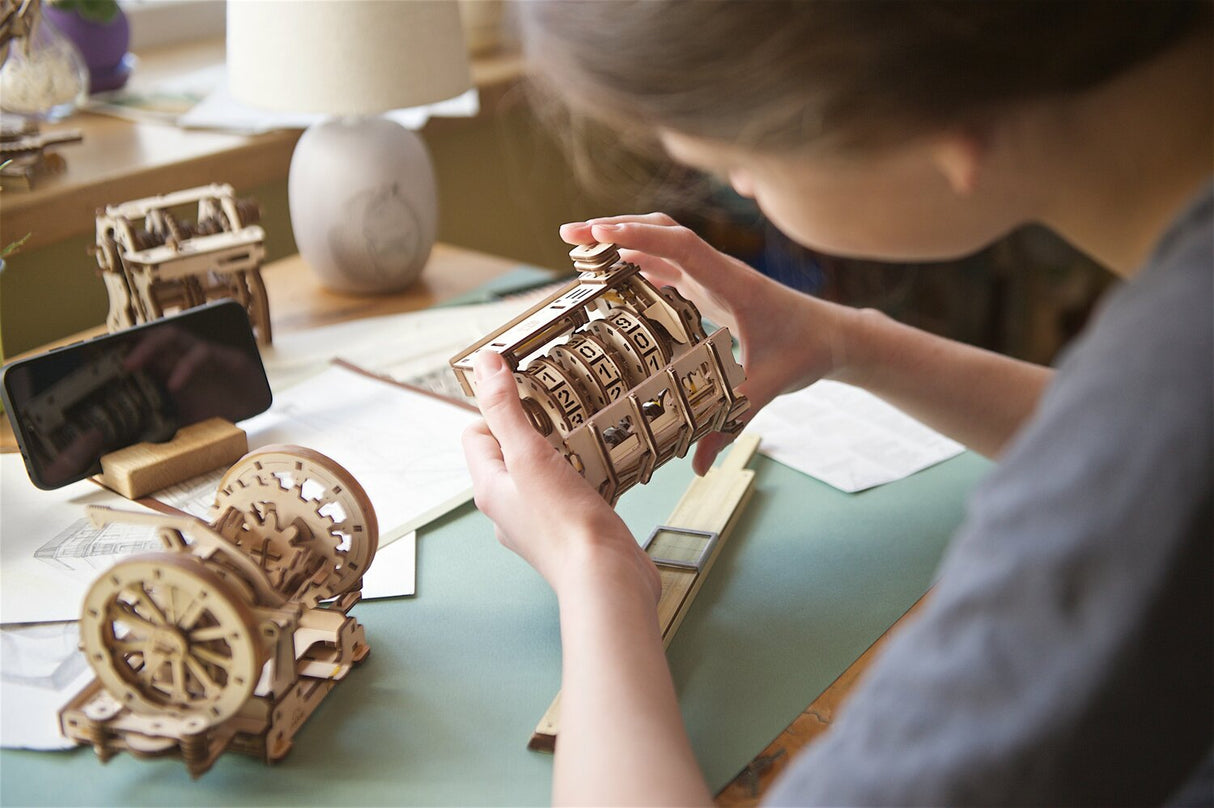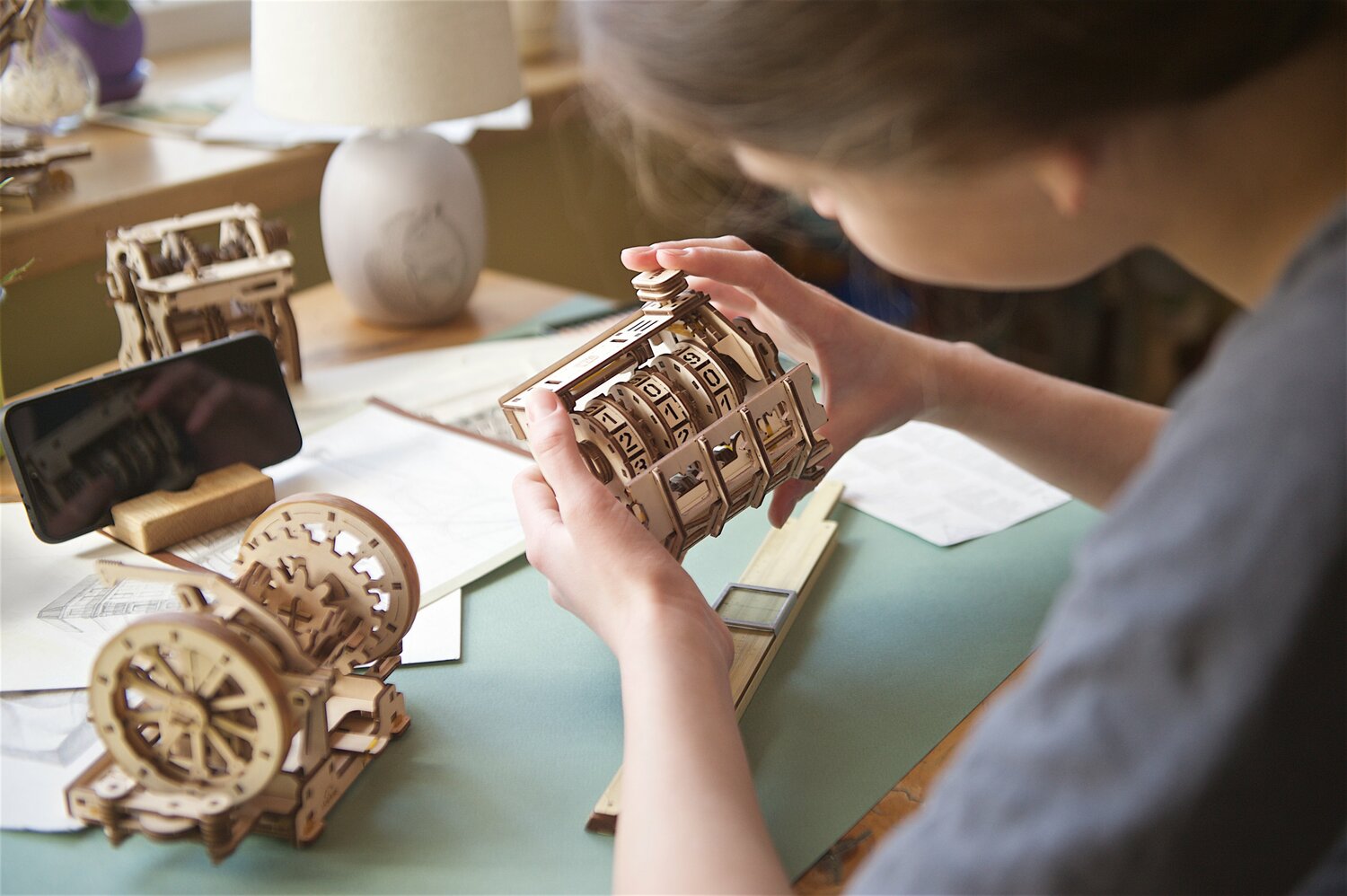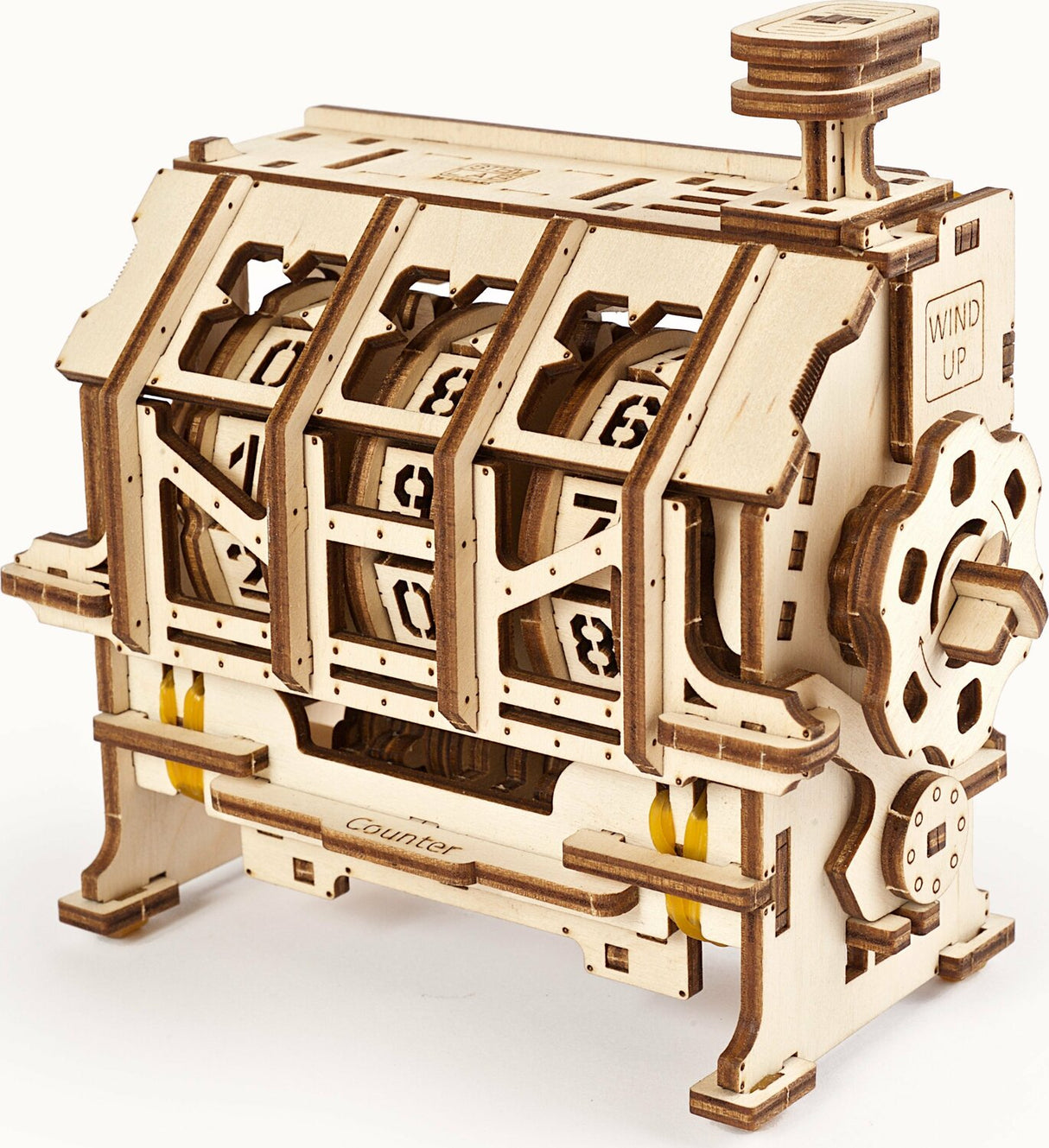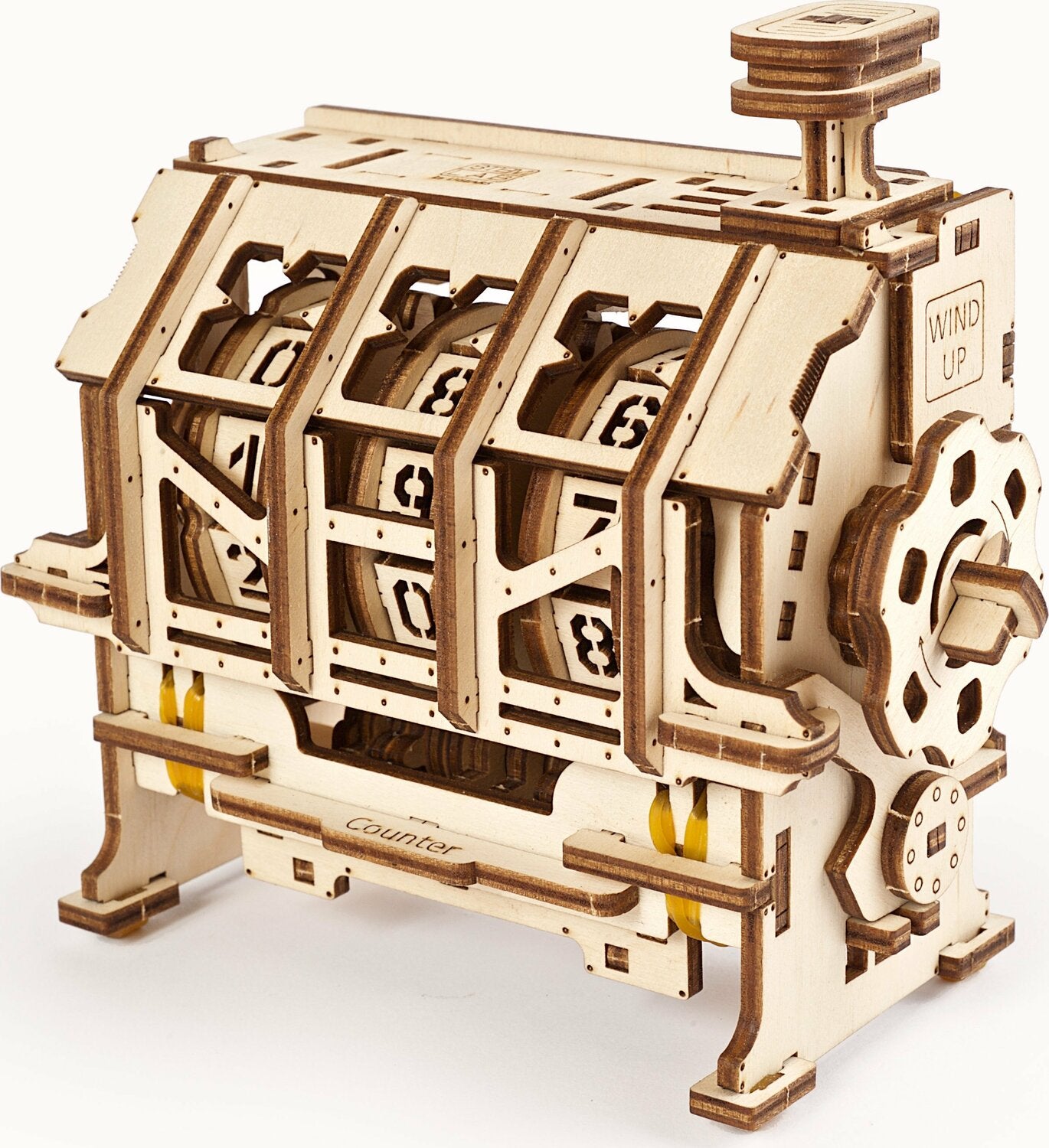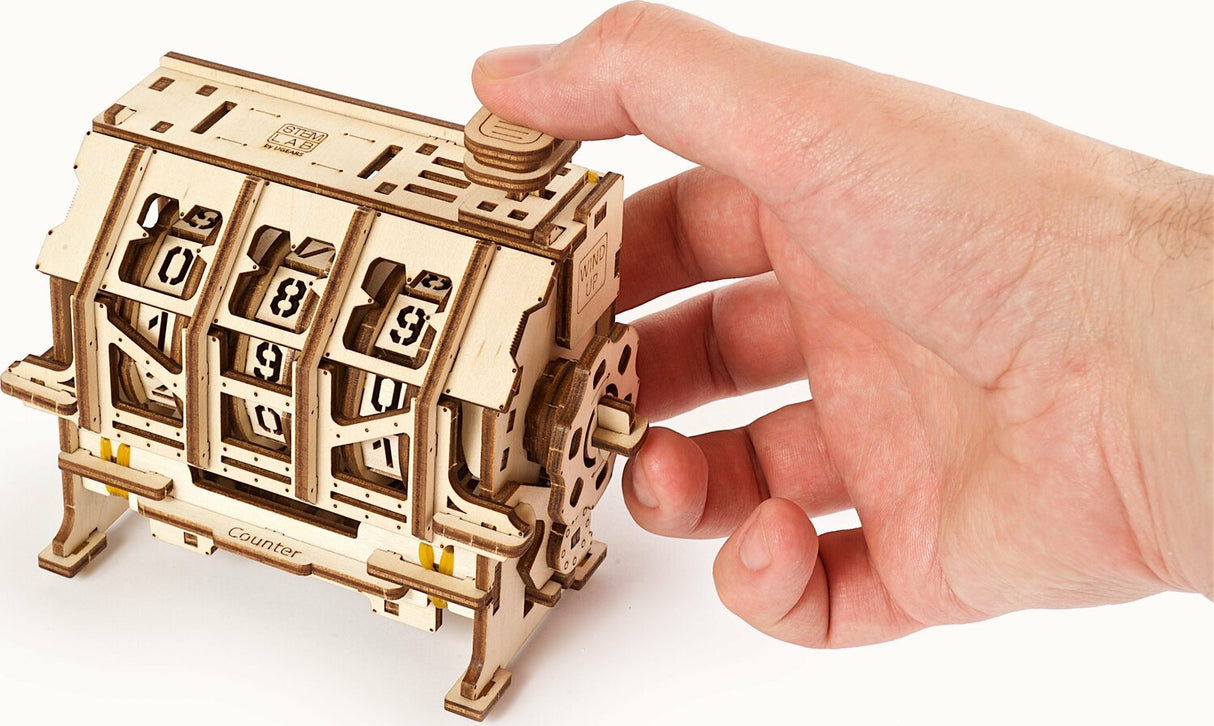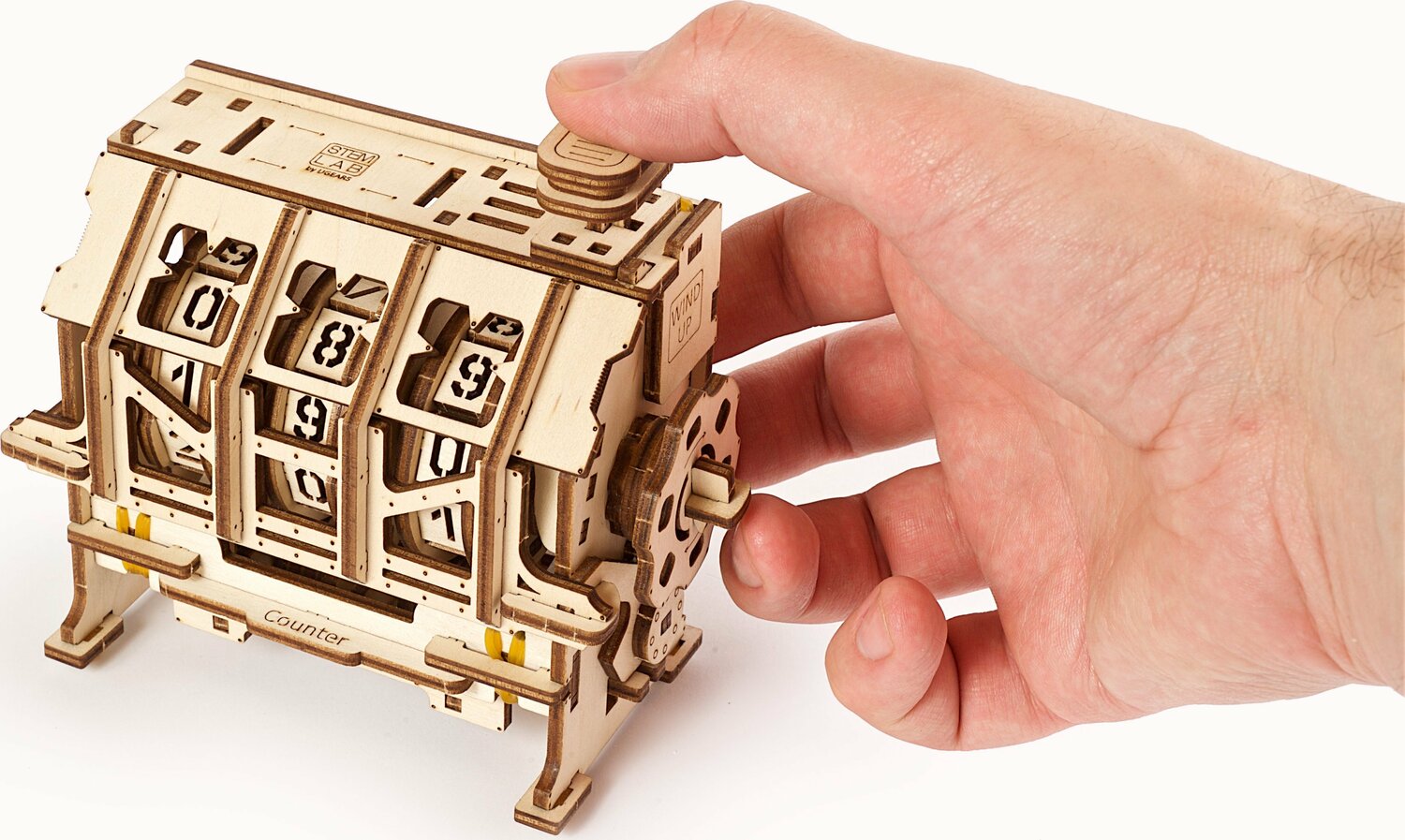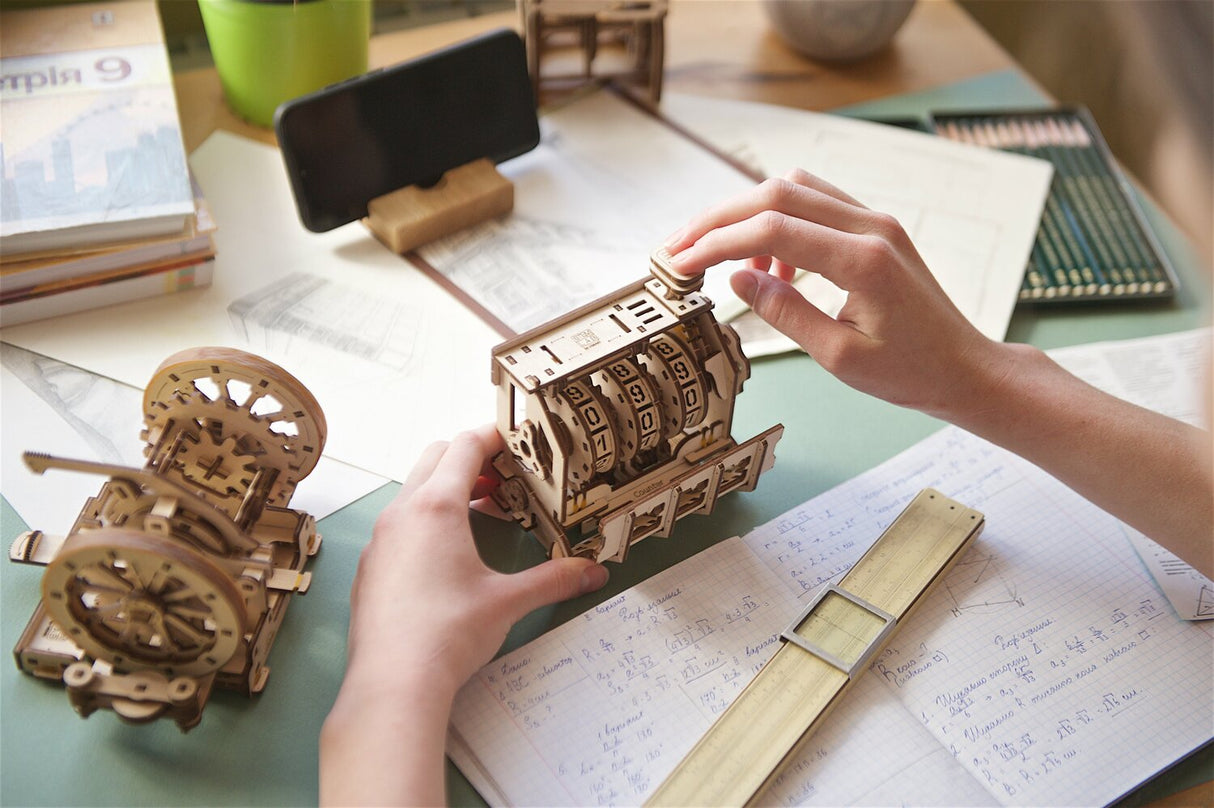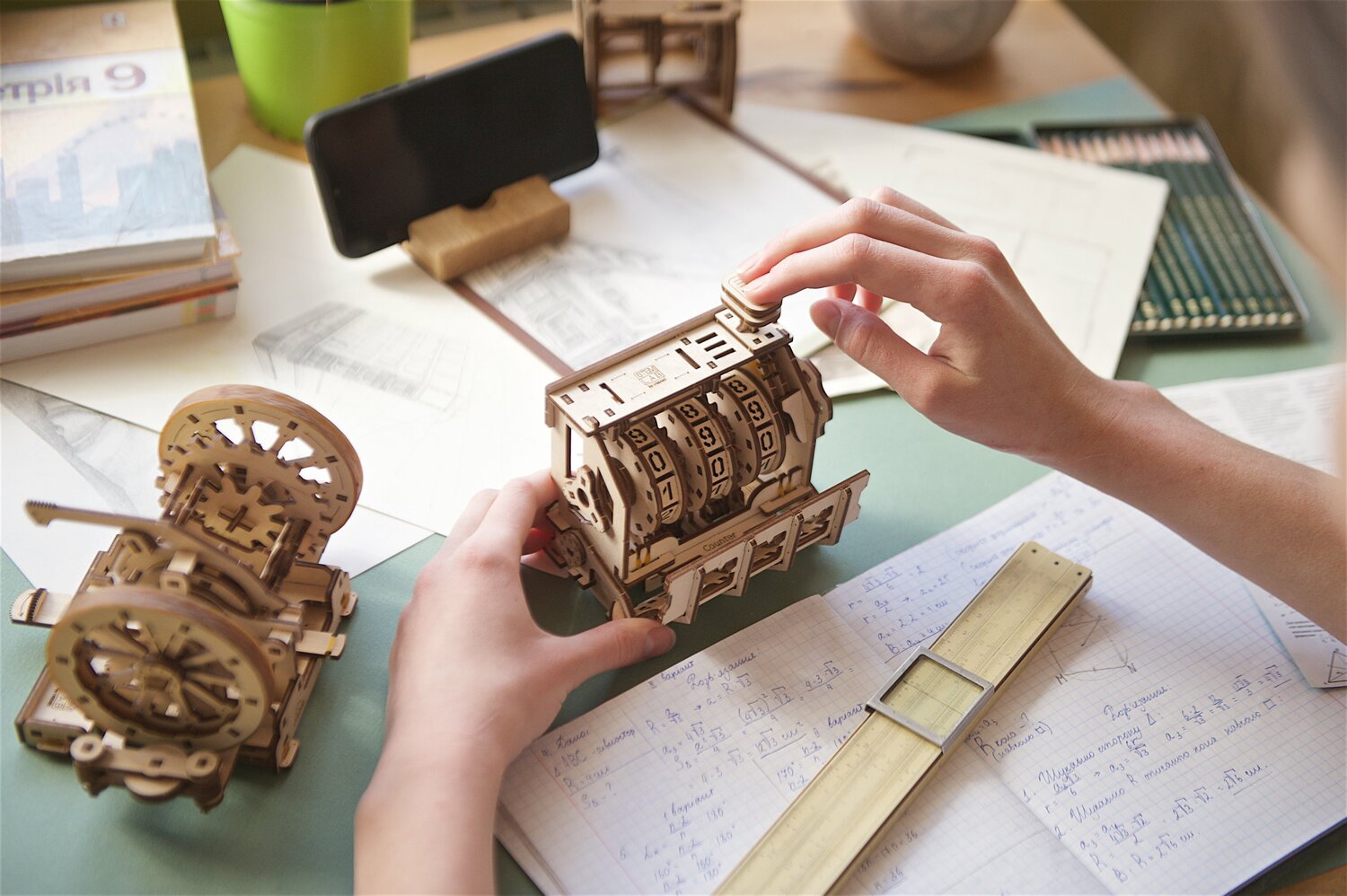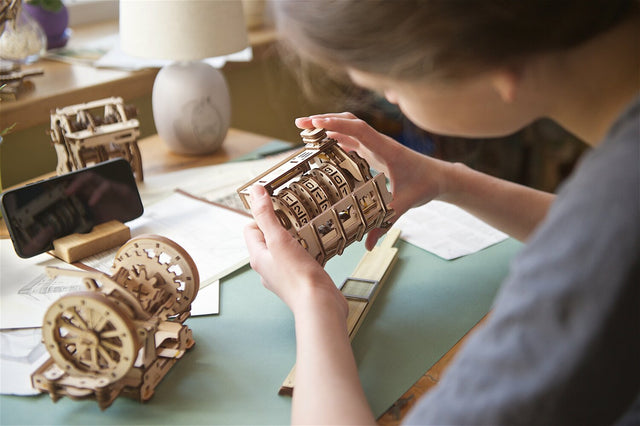Description
Description
Learn how the COUNTER works: The "Counter" model registers repetitive actions. The model has three cylinder gears with numbers from 0 to 9 and a Geneva Drive. This combination allows you to see an interesting mechanical feature: when the reciprocating motion of the click-button using the Geneva Drive mechanism turns into the rotary motion of the cylinder gears with numbers.
The Counter provides two options of data registering: click-button on the roof of its body, and a turn handle on its side. Pressing the click-button or turning the handle makes the Counter shift by one place. When the count passes 9, the Geneva Drive catches the next register cylinder and adds it to the count.
Altogether, the three-digit display of the Counter can register values from 1 to 999. You can open the front panel of the counter and reset it manually. Try counting steps on your way home. Or how many people you meet on a stroll through the park. How about, the number of blue cars passing by your house during one hour? Count stairs at home, at school or at a friends house.
When and who invented it: A counter, as a key part of odometer mechanism, was invented by an Ancient Greek mathematician and engineer' Hero of Alexandria who lived in 10-70 AD. It measured the length of the path by counting the number of rotations of the wheel. Later, the counter was improved and completed with a reducer that reduced the number of the wheel's revolutions depending on the measuring system (miles, leagues, kilometers) and showed reduced data on the display.
The mechanism of the Counter is composed of:
- Click-button to register values
- Cylinder gears with numbers
- Geneva Drive
- A Turn handle to register values
Self-assembly from the parts, pulled out from wooden boards, according to easy-to-follow manual instruction. No glue or cutting needed.
Payment & Security
Payment methods
Your payment information is processed securely. We do not store credit card details nor have access to your credit card information.


